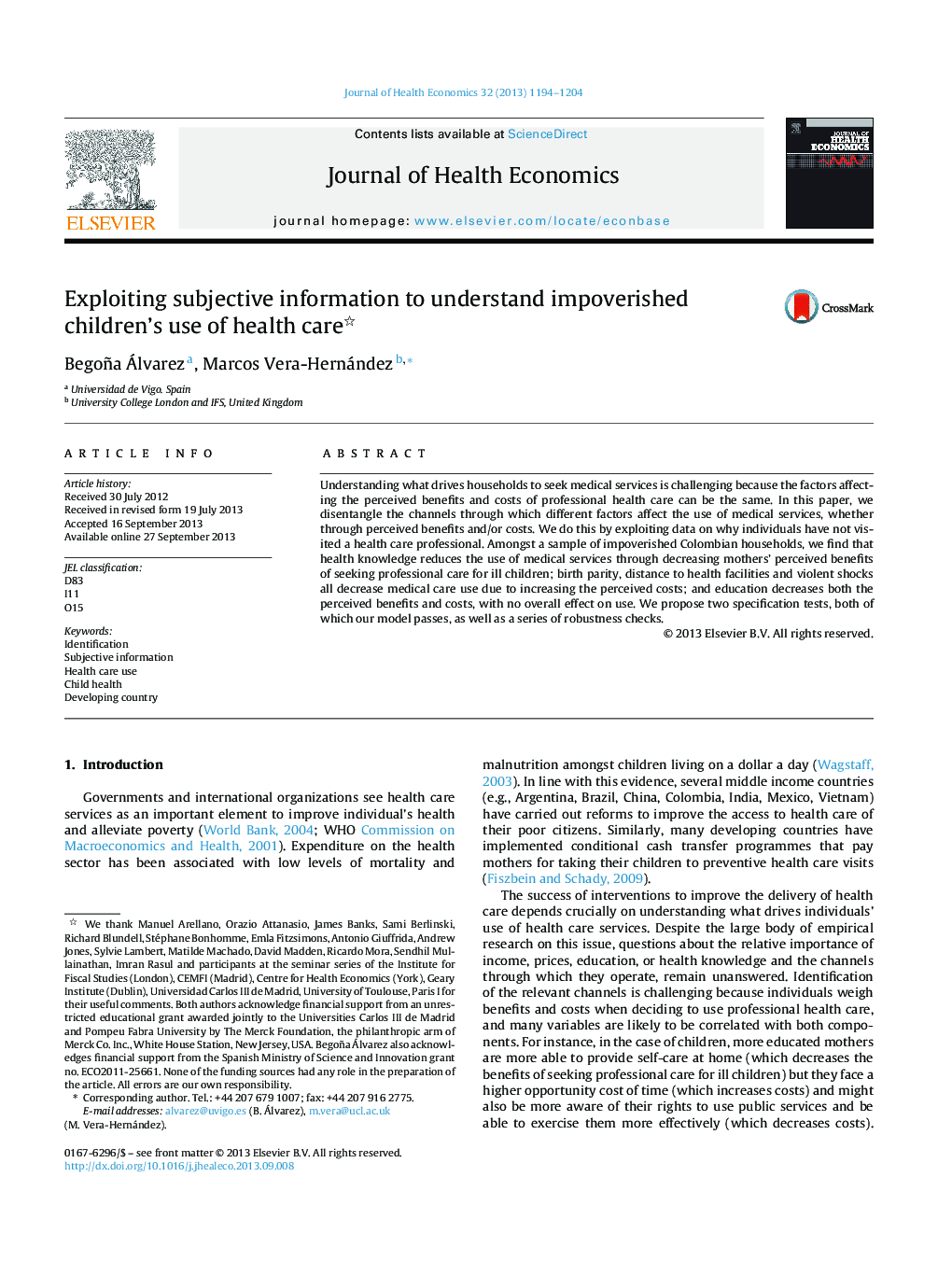| Article ID | Journal | Published Year | Pages | File Type |
|---|---|---|---|---|
| 961279 | Journal of Health Economics | 2013 | 11 Pages |
Abstract
Understanding what drives households to seek medical services is challenging because the factors affecting the perceived benefits and costs of professional health care can be the same. In this paper, we disentangle the channels through which different factors affect the use of medical services, whether through perceived benefits and/or costs. We do this by exploiting data on why individuals have not visited a health care professional. Amongst a sample of impoverished Colombian households, we find that health knowledge reduces the use of medical services through decreasing mothers' perceived benefits of seeking professional care for ill children; birth parity, distance to health facilities and violent shocks all decrease medical care use due to increasing the perceived costs; and education decreases both the perceived benefits and costs, with no overall effect on use. We propose two specification tests, both of which our model passes, as well as a series of robustness checks.
Related Topics
Health Sciences
Medicine and Dentistry
Public Health and Health Policy
Authors
Begoña Álvarez, Marcos Vera-Hernández,
